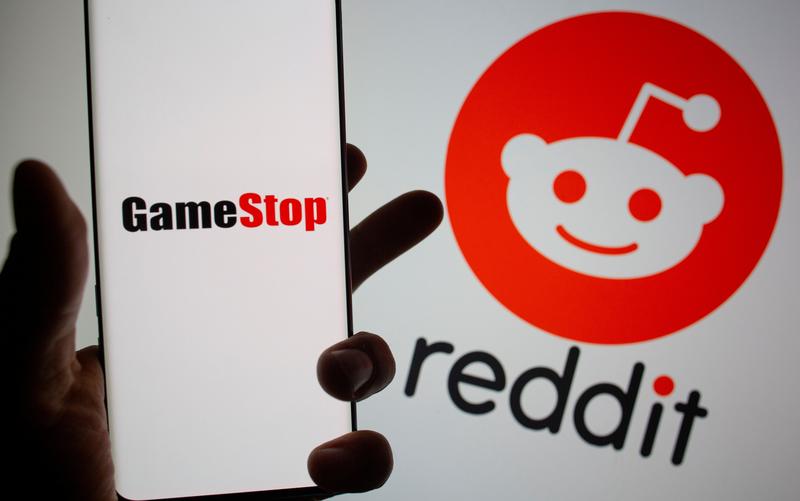WASHINGTON (Reuters) – Wall Street hedge fund managers, the chief executives of Robinhood and Reddit, and a YouTube streamer known as Roaring Kitty were grilled on Thursday by U.S. lawmakers about the Reddit rally in shares of GameStop Corp.
Some of Wall Street’s most powerful players, including billionaire Republican mega-donor and Citadel CEO Ken Griffin, defended their businesses as lawmakers probed how Reddit users trading on retail platforms squeezed hedge funds that had bet against shares of the video game retailer and other companies.
Griffin appeared before the Democratic-led House finance panel alongside Robinhood CEO Vlad Tenev, Melvin Capital CEO Gabriel Plotkin, Reddit CEO Steve Huffman, and Keith Gill, a Reddit user and YouTube streamer known as Roaring Kitty who promoted his investment in GameStop.
The five men have been at the center of the saga, which roiled Wall Street in January, prompting probes by several federal and state agencies.
Representative Maxine Waters, the committee chair, is a well-known critic of Wall Street, while Republicans on the panel also sought to burnish their consumer-protection credentials, making for a fiery virtual hearing. Tenev and Griffin faced particularly tough questions from both sides during an often chaotic discussion featuring echoes, feedback and background noise.
Waters, who in January called hedge funds “unethical,” bore down on Tenev and Griffin, frequently talking over the executives and cutting them off.
In prepared opening testimony, the witnesses generally acknowledged the GameStop saga was unprecedented, but they all said there was no foul play on their part.
Graphic: GameStop’s rise and fall GameStop’s rise and fall –
Related Coverage
See more stories
Graphic: GameStop comments soared on Reddit’s Wallstreetbets –
The Reddit rally drove massive volatility in GameStop and other shares, prompting the post-trade “clearing” houses that guarantee trades to call for billions of dollars in extra collateral from Robinhood and other retail trading platforms.
In response, many suspended buying in the affected stocks on Jan. 28. Lawmakers from both parties were outraged and questioned if the trading platforms were siding with hedge funds over retail investors.
Tenev expressed regret that Robinhood’s actions upset customers but said no hedge funds influenced its decision and the situation would have been “significantly worse” if it had not suspended buying.
“I’m sorry for what happened. I apologize. I’m not going to say that Robinhood did everything perfect,” he said, adding that the young fintech company would not repeat its mistakes.
New York-based hedge fund Melvin Capital, which had bet GameStop’s shares would tumble, suffered massive losses as the stock soared leading up to Jan. 28. Citadel made a $2 billion investment in Melvin on Jan. 25.
Lawmakers quizzed Robinhood’s commercial arrangements with market makers to which it routes orders, as well as whether that “payment for order flow” model hurts customers.
Griffin, majority owner of Citadel Securities, a Robinhood market maker, was castigated by Democratic Representative Brad Sherman for evading his question about whether market-makers provide the same prices to all brokers.
Griffin maintained Citadel Securities, which executes roughly 47% of all U.S.-listed retail volume, had worked for years to help give consumers “a better price.”
All parties have denied any attempt by Citadel or Citadel Securities to influence Robinhood’s policies.
MANIPULATION
Gill and Huffman fielded fewer questions, but were asked about the role of social media platforms in potential market manipulation.
“We spend a lot of time at Reddit ensuring the authenticity of our platform… And in this specific case, we did not see any signs of manipulation,” Huffman told lawmakers.
Gill sat in a red videogaming chair from which he recorded many of his podcasts extolling GameStop. Behind him was displayed a poster of a kitten with the caption “Hang in there!”, an apparent message to fellow GameStop investors, many of whom face deep losses after buying at the height of the rally.
“I am just an individual whose investment in GameStop and posts on social media were based upon my own research and analysis,” he said, adding he still liked the stock.
At times, he and Plotkin offered their competing investment theses on GameStop, with Plotkin arguing that due to the rise of digital downloads, the video game bricks-and-mortar business model has “structural challenges.”
Source: Read Full Article
